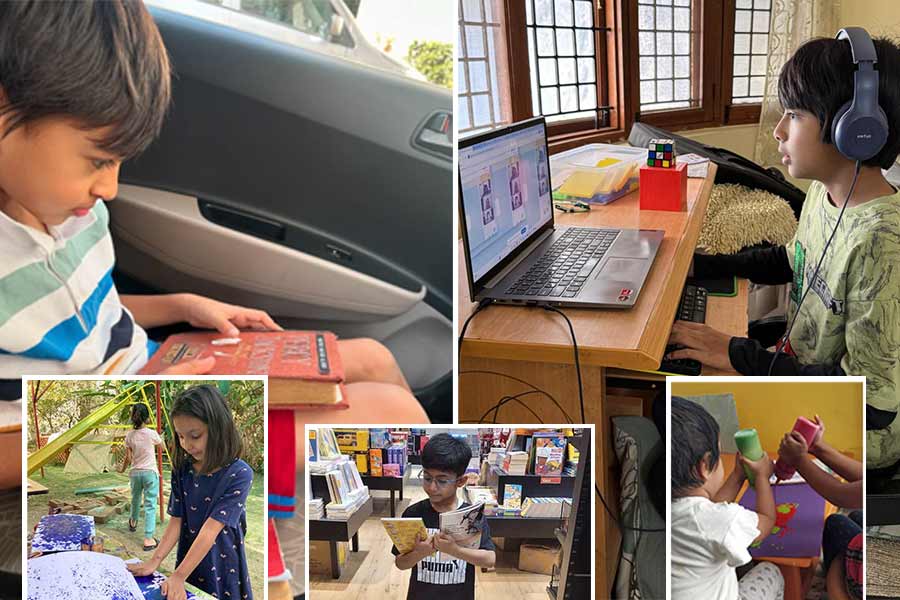Nine-year-old Vedarth Shah does not go to school. He has no fixed subjects or syllabus. He learns math by buying things at grocery shops. The parents of Vedarth – who lives in Surat – are part of a small but growing number of urban Indians who are opting for homeschooling and alternative means of education for their children.
Most parents opting for such education for their children have separate reasons, but there is a common thread.
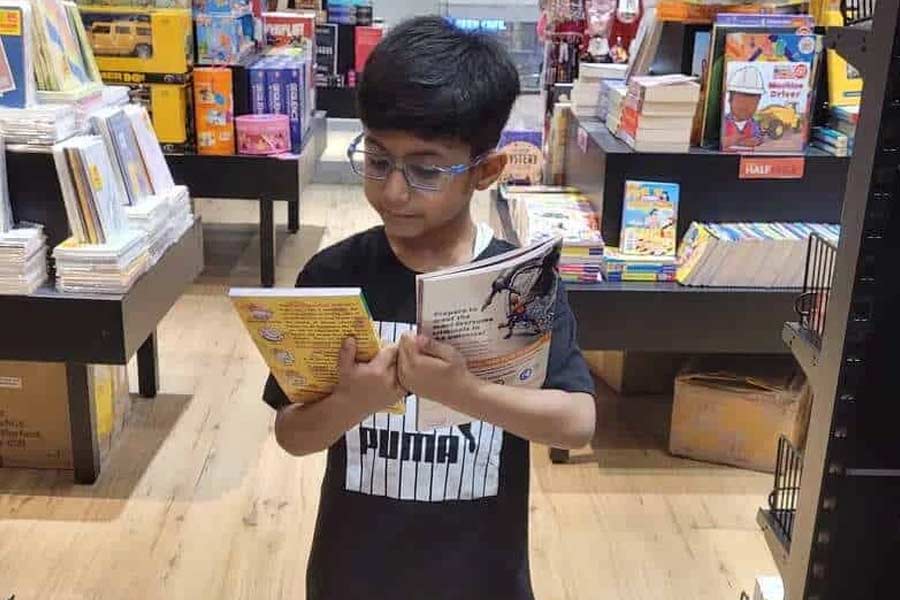
Advik, son of Rahul Ojha. Picture: Source from the Correspondent
Rahul Ojha from Noida noticed his son, Advik, had stopped talking after being scolded in school. Ishani Verdia, who lives in Udaipur, Rajasthan, never wanted to send her daughter, Raedita, to school because she always felt something was wrong with the education system. Ditto for Dhillan from Bangalore for his son, Arlo.
“We decided on unschooling rather than homeschooling since we realised that we don't want to force our child with curriculum. His interest and his questions are his curriculum,” said Vedarth’s mother, Vishruti Samil Shah, a parenting influencer.
“Initially we also had fears like every other parent, but the more we went ahead in the journey we started loving every part of it including the struggles.”
Is homeschooling legal?
Homeschooling regulations vary significantly across countries. In some nations, it is tightly regulated, requiring parents to meet specific educational standards and undergo regular assessments. Other countries give families greater autonomy over their children's education. In a country like the US, each state has its set of rules and requirements.
In India, home-schooled students can take the IGCSE (International General Certificate of Secondary Education) exams as private candidates, or their 10th and 12th examinations from the NOIS (National Institute of Open Learning).
These exams are held at centres across India. This means that homeschooling parents can educate their children at home and obtain a certificate of completion. There are also private online and hybrid homeschooling alternatives such as K8, Birla Brainiacs, Stay Qrious, 21k, with the list growing longer every day and most of these platforms claiming they are the pioneers.
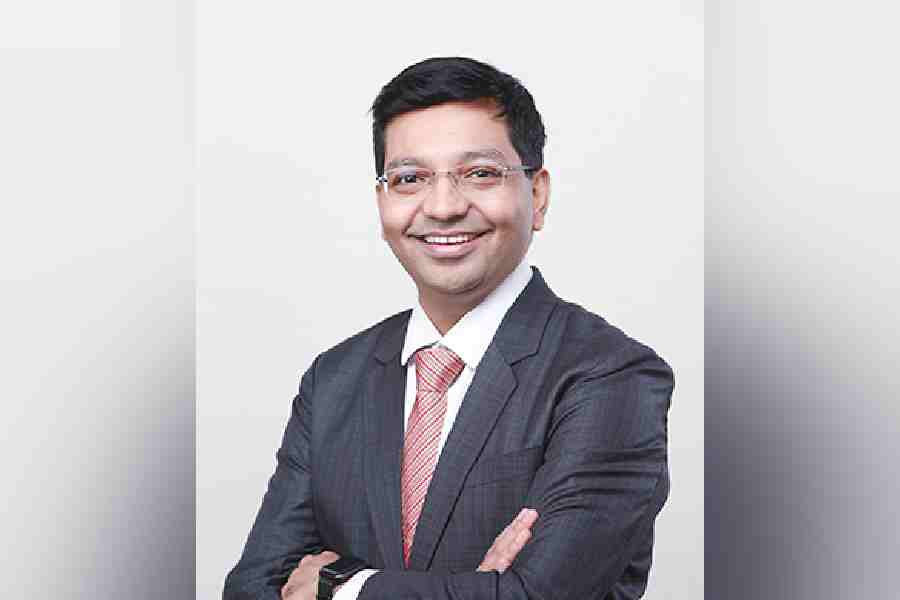
Yeshwanth Raj Parasmal, founder of the 21K School in Bengaluru. Picture: 21kschool.com
"The legality of alternative education options varies by locality,” said Yeshwanth Raj Parasmal, founder of the 21K School in Bengaluru. “In India, homeschooling is legal because it is not regulated by law under the Right to Education Act. We have students all across the country so we are not bound to one law. We are affiliated under the UK's Cambridge certificate. This certificate is very much accepted in India and is a globally recognised qualification.”
Dhillan, a rock climber and media consultant, admitted that there still are a few concerns for homeschooling parents in India, “like getting school certificates and recognition. That's when we decided to admit our kid in Stay Qrious,” he said.
Why parents are choosing homeschooling, alternative platforms
“We knew about homeschooling from the beginning and it was always our first option for our child. My son, Arlo, is a climber too and we end up travelling a lot. Flexibility plays the main role when it comes to homeschooling. My child usually studies for two to three hours. We should focus on a child's mental health, skills and their needs. College preparedness is a secondary thing,” Dhillan said.
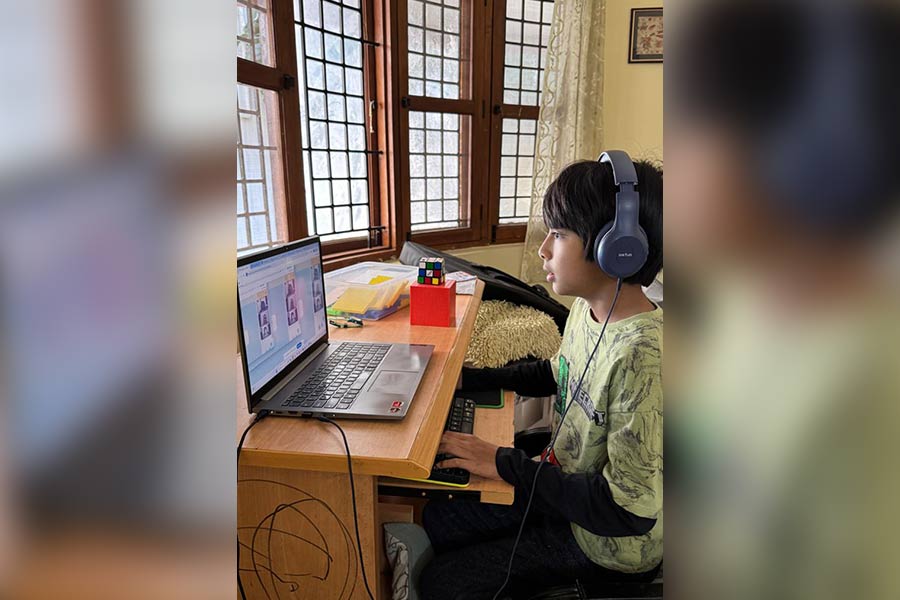
Arlo, son of Dhillan. Picture: Source from the Correspondent.
Ishani Verdia, chartered accountant and educationist from Udaipur, echoed Dhillan. “The education that regular schools are offering won’t give you the idea to face the real world,” Ishani said.
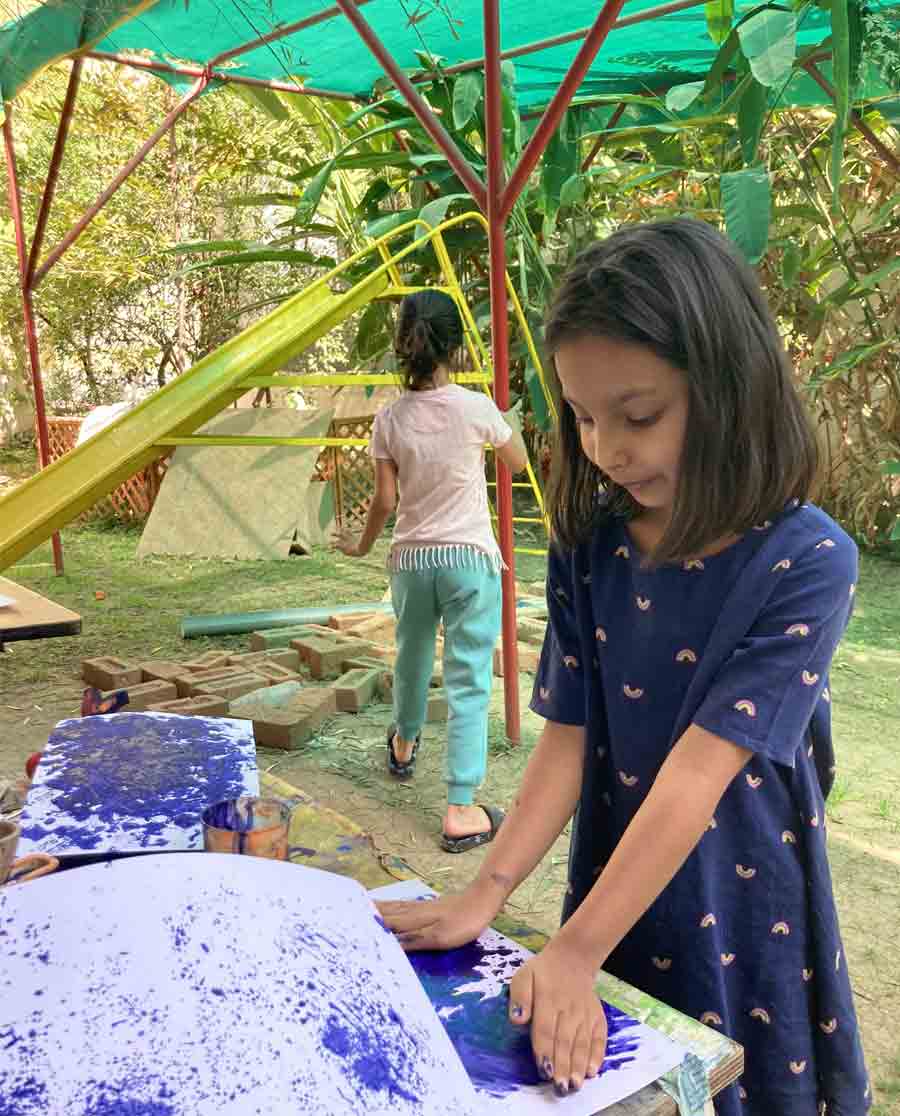
Raedita, daughter of Ishani Verdia.
There is no separate syllabus for homeschooling children. Most parents follow prescribed textbooks. Some don’t follow textbooks and others design their own curricula by referring to syllabi of different boards. Most parents The Telegraph Online spoke to said they followed the CBSE or state board syllabus.
Noida-based MNC employee Rahul Ojha said he realised his son, Advik, was not being himself at school.
“My kid was not happy in his regular school. The early morning rush to the school and travelling daily took away all his energy. One day we saw he was not talking with anyone. He said that the teacher punished one of his classmates just because he was talking and that scared him. So he decided that it's better to stay quiet. All these things worried us,” Ojha explained.
Dr Rashmila Maity, who teaches at a reputed international school in Kolkata, sounded a note of warning by underlining what might work in the west may not in India.
“India as a country is very much focused on community. The US is a very individualised society. You can't get rid of that aspect,” she said.
How is homeschooling and alternative education different?
Anand Srinivas, who gave up his job as a physics teacher to start Stay Qrious, said what makes alternative education radically different is that almost all the learning happens through real-world projects designed for kids.
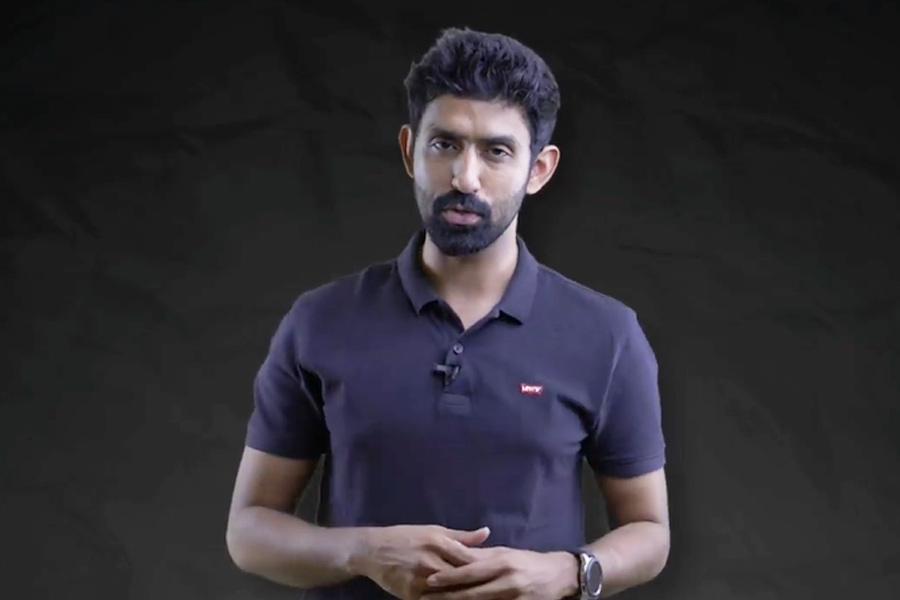
Anand Srinivas, founder of Stay Qrious. Instagram: aanand_srinivas
“The number of students in a class is just eight. There are no lectures but rather students working on projects – for example, kids creating a business plan for a chocolate factory or suggesting what crops to grow in a particular region or designing a game,” Srinivas said.
“When you put kids in such an active environment with a small classroom size, what they do in the classroom is drastically different. Everyone is talking and pitching in their thoughts. Isn't school supposed to help kids prepare for the real world? This will help children to get the job they want," he added.
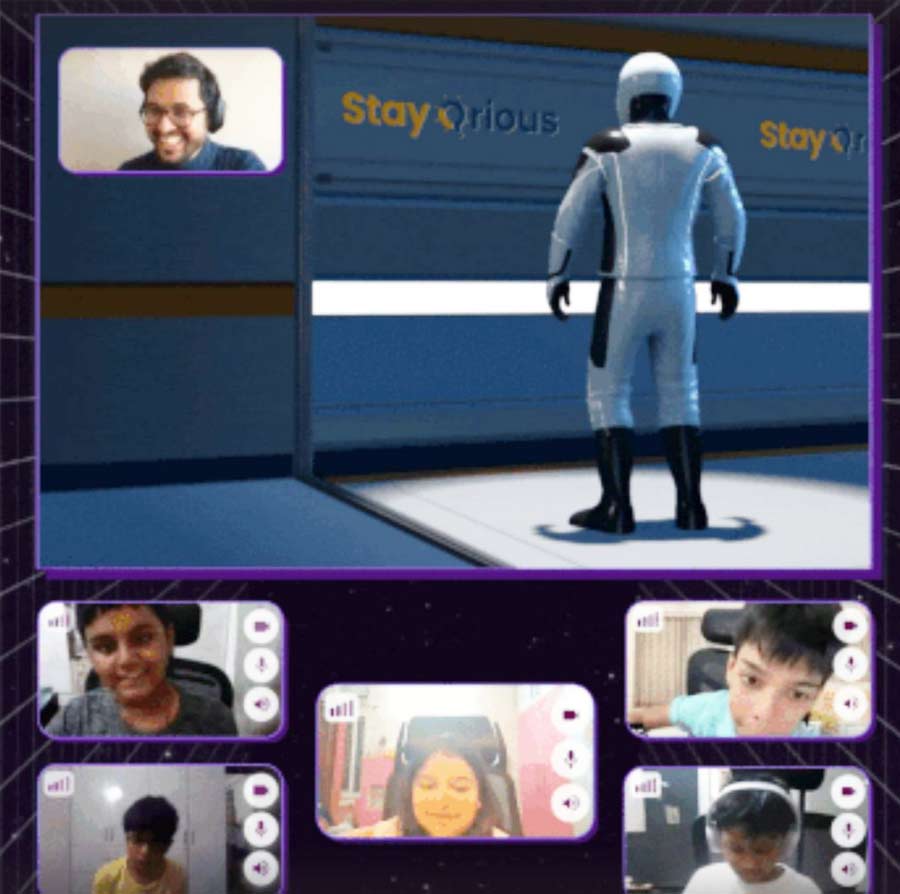
Stay Qrious students attending online class. Picture: Source from the correspondent.
How much does homeschooling cost?
"At times it can be more expensive than sending the child to regular schools. It depends on the child’s learning needs and what the parents choose," said Manish Jain, co-founder of Swaraj University, an institution in Udaipur that focuses on self-designed learning along with green entrepreneurship.
Jain studied at Harvard, but pulled his daughter out of school in India.
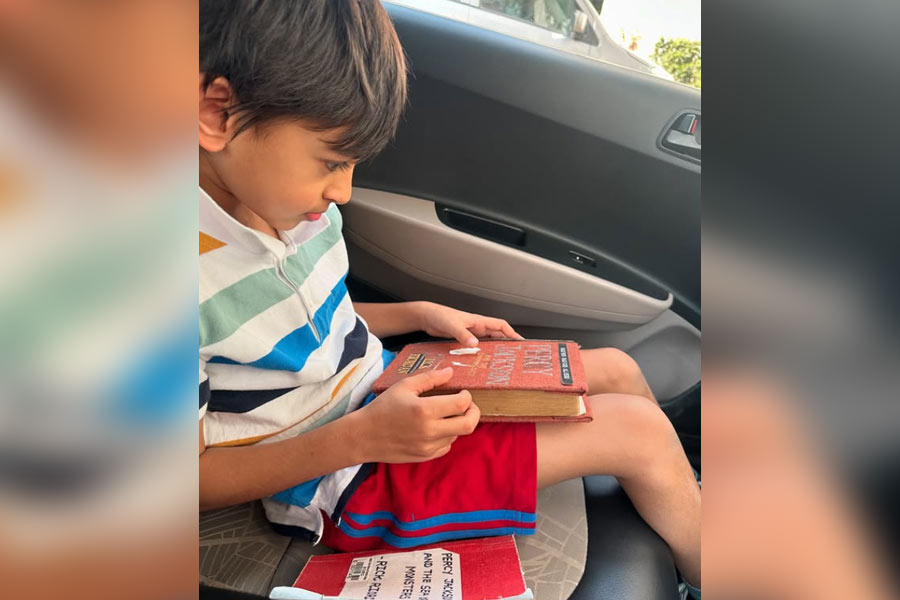
Vedarth, son of Vishruti. Picture: Sourced by Correspondent.
Vedarth’s mother, Vishruti, had a different take. “In traditional schools we invest more than lakhs on education and books that are not even needed,” she said. “In that way there is no wastage of money; we don’t end up buying things that are not required as a result there is no financial burden on us. At times we can borrow books from others as well.”
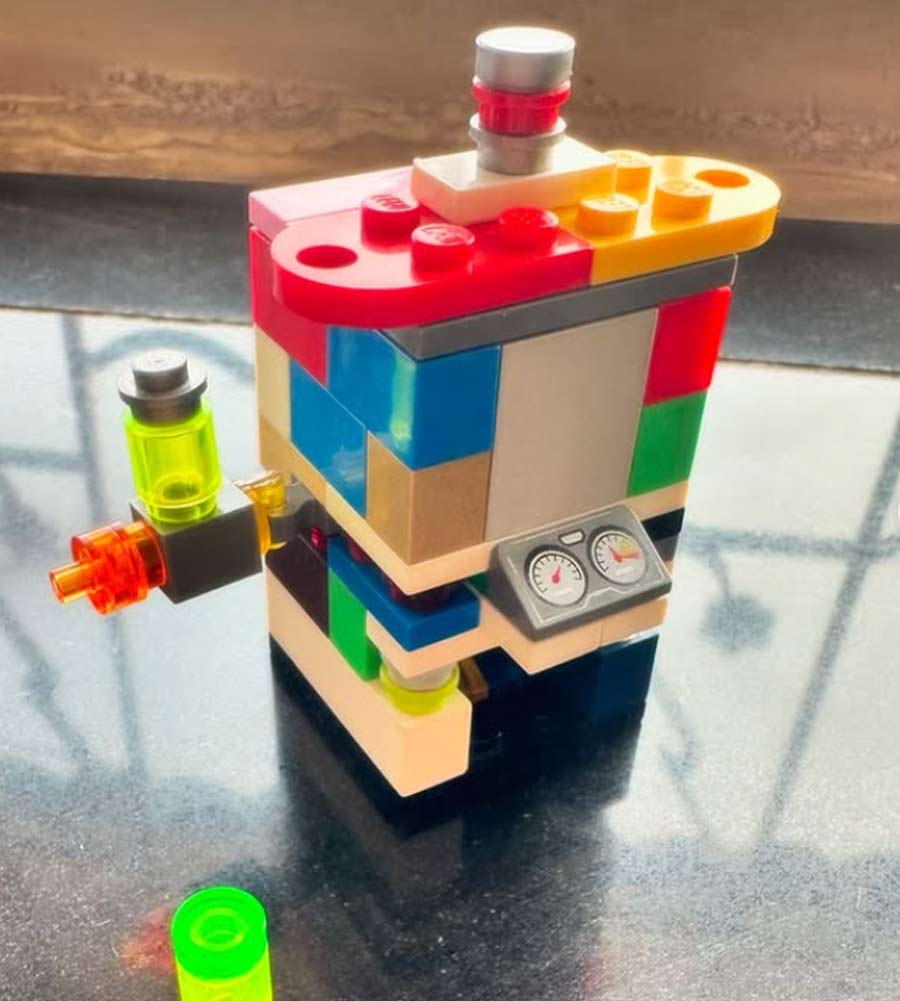
Machine made by Vedarth. Picture: Sourced by Correspondent.
Asked what kind of parents choose homeschooling their kids, Srinivas of Stay Qrious said: "Most of the parents are entrepreneurs and they are highly successful in their career. They understand that when they hire today they are not just hiring people just based on their degrees.”
Parasmal of 21k school said mostly millennial parents choose online education.
“In terms of students we have seen good growth over the last three years across the country. When we first started the school there were very few admissions. Now we have 24 students in each class. None of the classes are empty. There was a rapid increase after 2020,” he added.
Rashmila Maity begged to differ and flagged some concerns.
“I have not seen any growth of alternative education in India. This idea of schooling is also going to be difficult in India in terms of logistics, large income gaps between rural and urban communities and administering the whole process,” she said.
“Self-motivation is very important for homeschooling, which is difficult for kids to have. Also, parents have to give a lot of attention and time.”
Most parents who homeschool their children do have to focus a lot.
“Three of us – me, my mom and my wife – were actively involved in the process of educating our son,” said Dhillan. “The three of us have knowledge on different subjects. For example I used to teach him math, my wife used to help him out with social science and my mother used to teach him history.”
Dhillan summed up how parents like him feel.
“Some kids are introverted and few are extroverts. Traditional schools do not make any difference in that,” he pointed out. “Enjoying learning is important. India’s education system has changed a lot and I am confident that alternative education will find its way.”
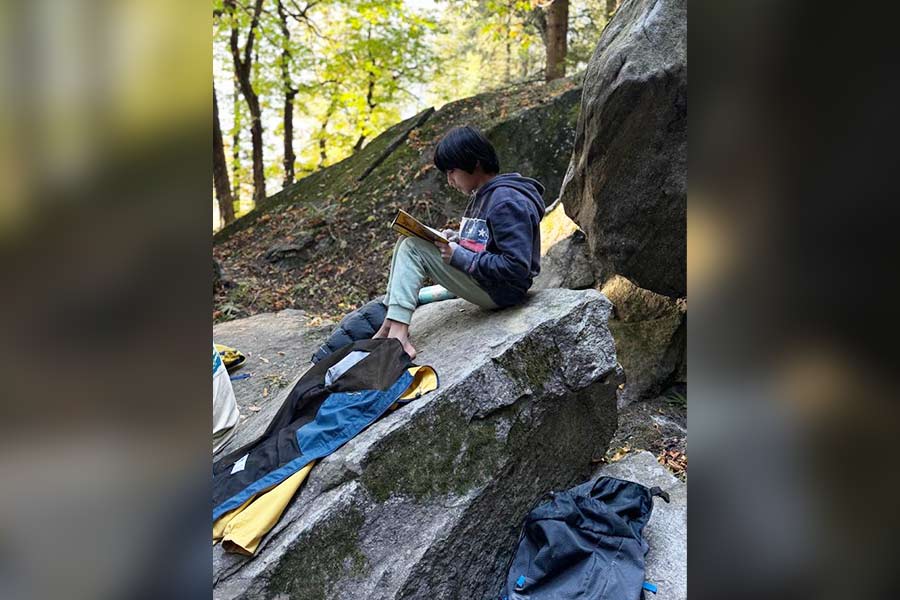
Dhillan's son, Arlo reading book while on a vacation.

